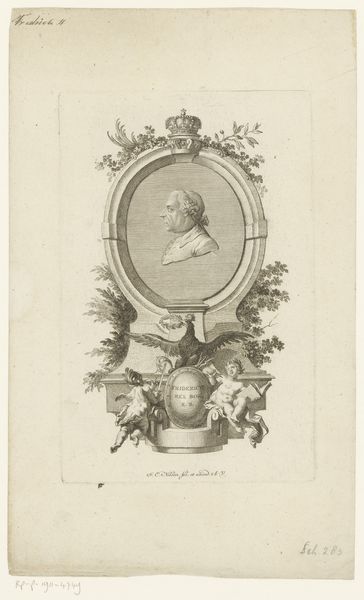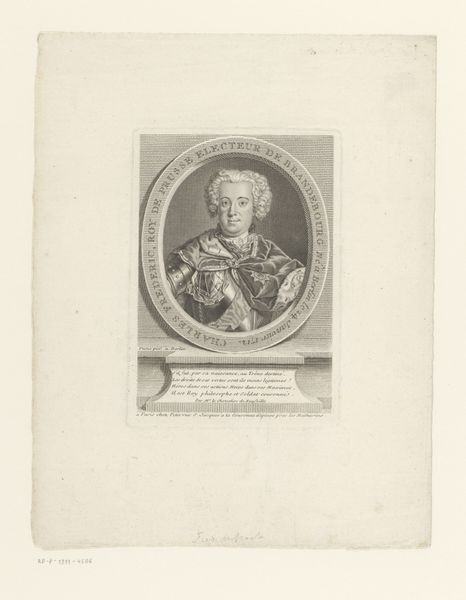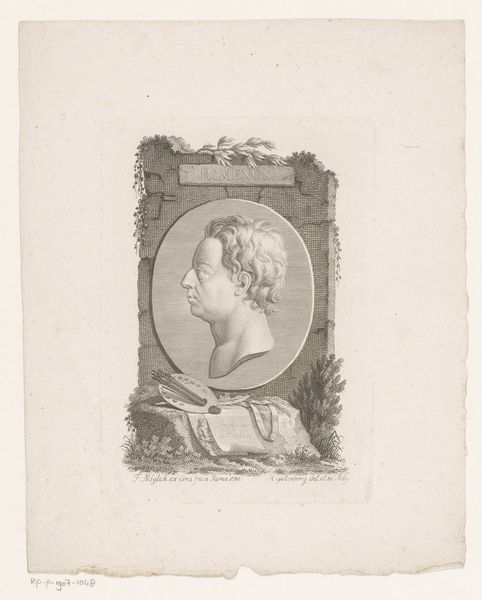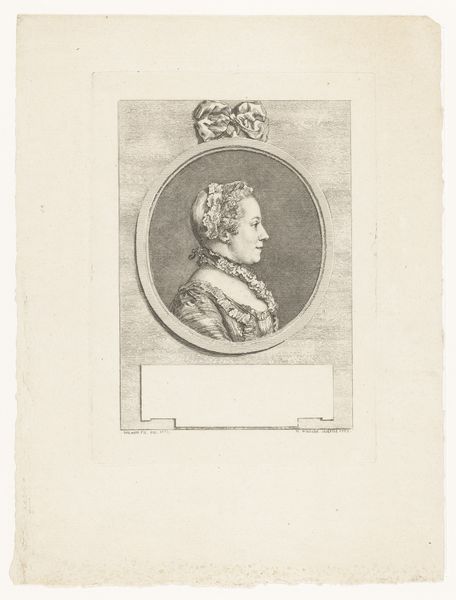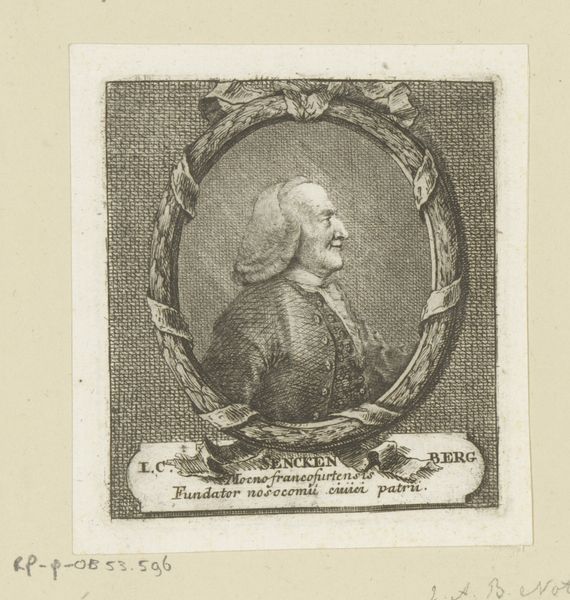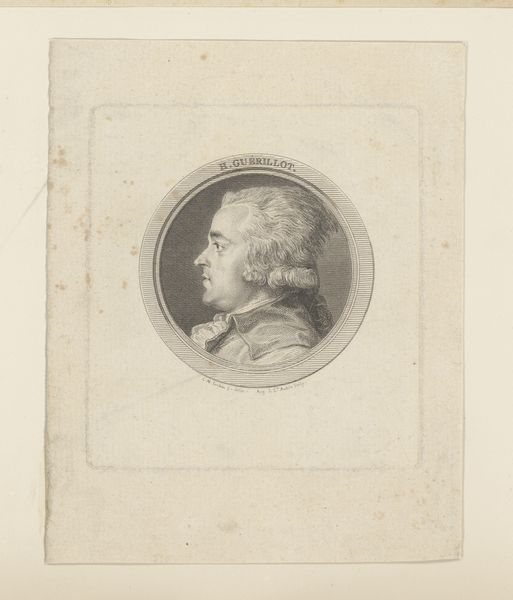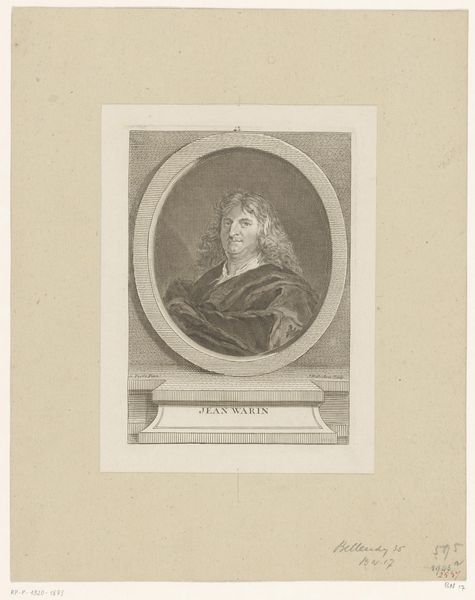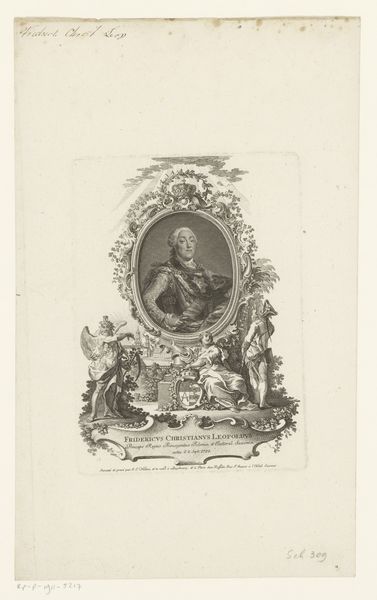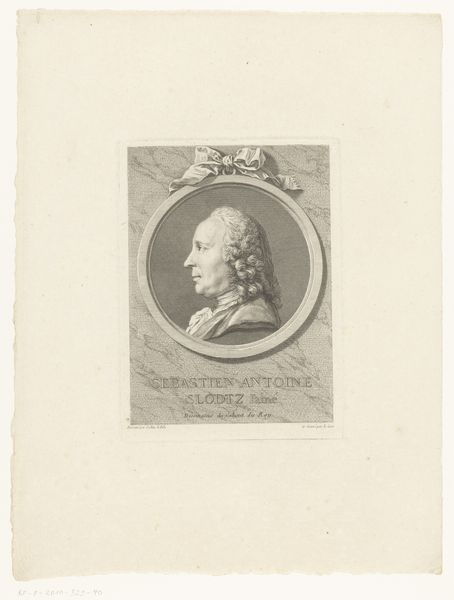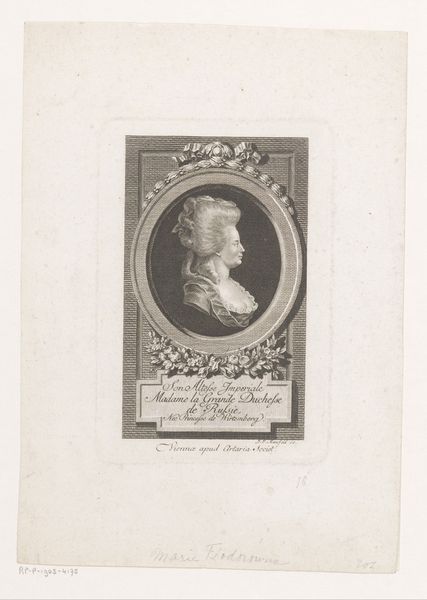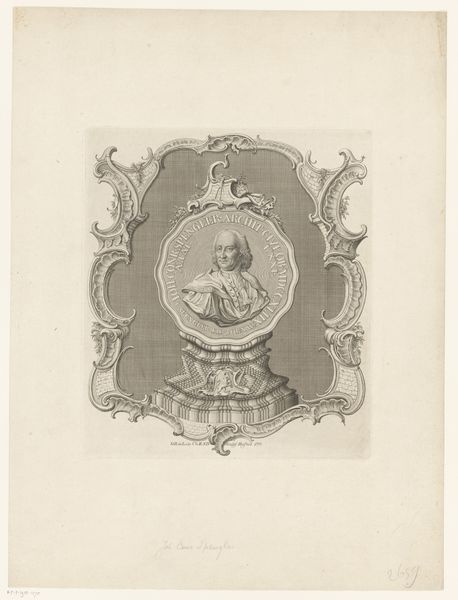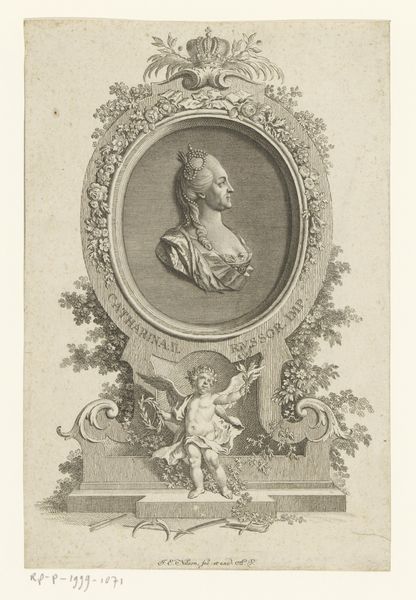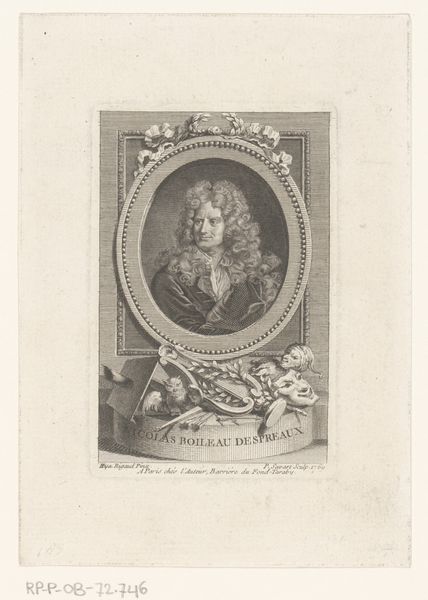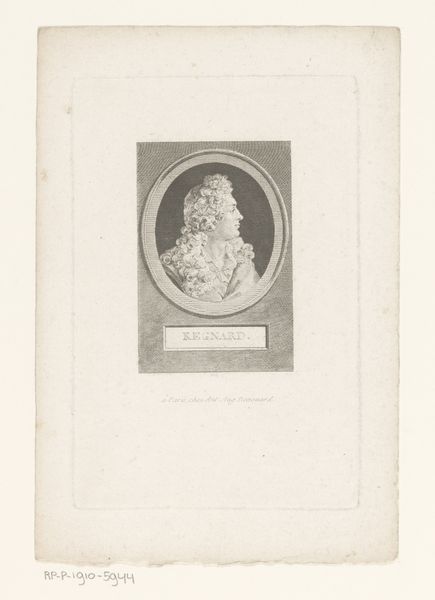
drawing, pencil, engraving
#
portrait
#
pencil drawn
#
drawing
#
pencil sketch
#
old engraving style
#
figuration
#
pencil drawing
#
romanticism
#
pencil
#
line
#
engraving
Dimensions: height 74 mm, width 66 mm
Copyright: Rijks Museum: Open Domain
Curator: Oh, I’m immediately struck by its delicacy, a whisper of a portrait. It's got such a tender, ephemeral feel to it. Editor: Indeed. Here we have Daniel Nikolaus Chodowiecki's "Portret van Sophie Schwarz" created with pencil and engraving around 1791. It’s part of the Rijksmuseum's collection. A fine example of portraiture. Curator: The choice of such light materials absolutely influences our perception. I love how he’s framed her in what looks like an oval wreath – classically romantic – and then there's this… bizarre memento mori element beneath it? It’s throwing me for a loop! Editor: Ah yes, the skull with bat wings nestled in the clouds. This imagery plays upon the vanitas tradition, reminding us of mortality amidst beauty and success. Sophie’s calm countenance framed above is almost defiant. The portrait as a symbolic space – she exists in a moment, but is conscious of time. Curator: I can see that. The overall design, though... that juxtaposition makes me slightly uncomfortable, intentionally? Or perhaps to elicit a bit of emotional whiplash? The stern reminder beneath the refined image. It’s making me question my immediate reaction. Is she truly serene, or is it a carefully constructed facade, just as ephemeral as this delicate drawing? Editor: Well, I see that the artist has certainly played with the familiar Romantic era themes, adding a darker spin with the memento mori—a reminder to consider your values against the certainty of the passage of time and to contemplate existence and life choices in relation to it. And the style has this certain “old engraving style” reminiscent feel. Curator: What's she pondering, I wonder? As someone alive then, it feels more real. I get caught up thinking about the actual Sophie and that era; her thoughts, what filled her day-to-day, and I have this great ache of longing for something I've never even known. Editor: In essence, the artist used visual symbols to depict mortality; what's more curious, is to ponder its place in society then. It makes us think of death’s ever-presence—even in ostensibly beautiful moments—and reflect about our very own understanding and acceptance of that complex dichotomy. Curator: Perhaps we’ve each found a part of Sophie—the public, beautiful presentation, and the introspective truth. Editor: A union forever captured in ink and time, for sure.
Comments
No comments
Be the first to comment and join the conversation on the ultimate creative platform.
